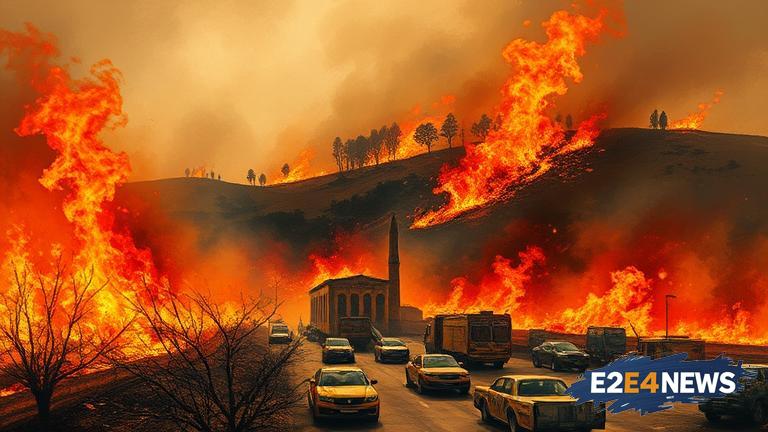Greece has been grappling with an unprecedented wave of wildfires that have spread across the country, prompting the government to seek assistance from the European Union. The EU has responded by deploying firefighters, aircraft, and equipment to help contain the blazes. The wildfires have forced the evacuation of thousands of people, with many more at risk as the fires continue to spread. The Greek government has declared a state of emergency in several regions, mobilizing the military to assist in the relief efforts. The EU’s aid package includes the deployment of over 200 firefighters, as well as aircraft and helicopters to help combat the fires. The European Commission has also pledged to provide financial assistance to support the relief efforts. The wildfires have destroyed significant portions of Greece’s countryside, including forests, agricultural land, and infrastructure. The blazes have also had a devastating impact on local wildlife, with many animals killed or displaced. The Greek government has faced criticism for its handling of the crisis, with some accusing the authorities of being slow to respond to the emergency. However, the government has defended its actions, saying that it has done everything in its power to contain the fires. The EU’s assistance has been welcomed by the Greek government, which has praised the bloc’s swift response to the crisis. The wildfires have also raised concerns about climate change, with many experts warning that such disasters will become more frequent and intense in the coming years. The Greek government has pledged to take steps to mitigate the impact of climate change, including investing in renewable energy and reducing greenhouse gas emissions. The EU has also pledged to support Greece’s efforts to transition to a more sustainable economy. The wildfires have had a significant impact on Greece’s economy, with the tourism industry being particularly affected. Many tourists have been forced to evacuate the country, with others canceling their plans to visit Greece. The Greek government has estimated that the wildfires will cost the economy millions of euros in lost revenue. The EU’s aid package is expected to help alleviate some of the economic burden, but the long-term impact of the wildfires remains to be seen. The Greek government has also faced criticism for its preparedness for the crisis, with some accusing the authorities of being caught off guard by the severity of the wildfires. However, the government has defended its actions, saying that it had taken steps to prepare for the fire season. The EU’s assistance has been coordinated through the European Commission’s Emergency Response Coordination Centre, which has been working closely with the Greek authorities to respond to the crisis. The centre has been providing real-time monitoring and analysis of the situation, as well as coordinating the deployment of resources and personnel. The EU’s response to the crisis has been praised by the Greek government, which has thanked the bloc for its support. The wildfires have also highlighted the need for greater cooperation and coordination between EU member states in responding to natural disasters. The EU has pledged to review its disaster response mechanisms in light of the crisis, with a view to improving its ability to respond to such emergencies in the future.
